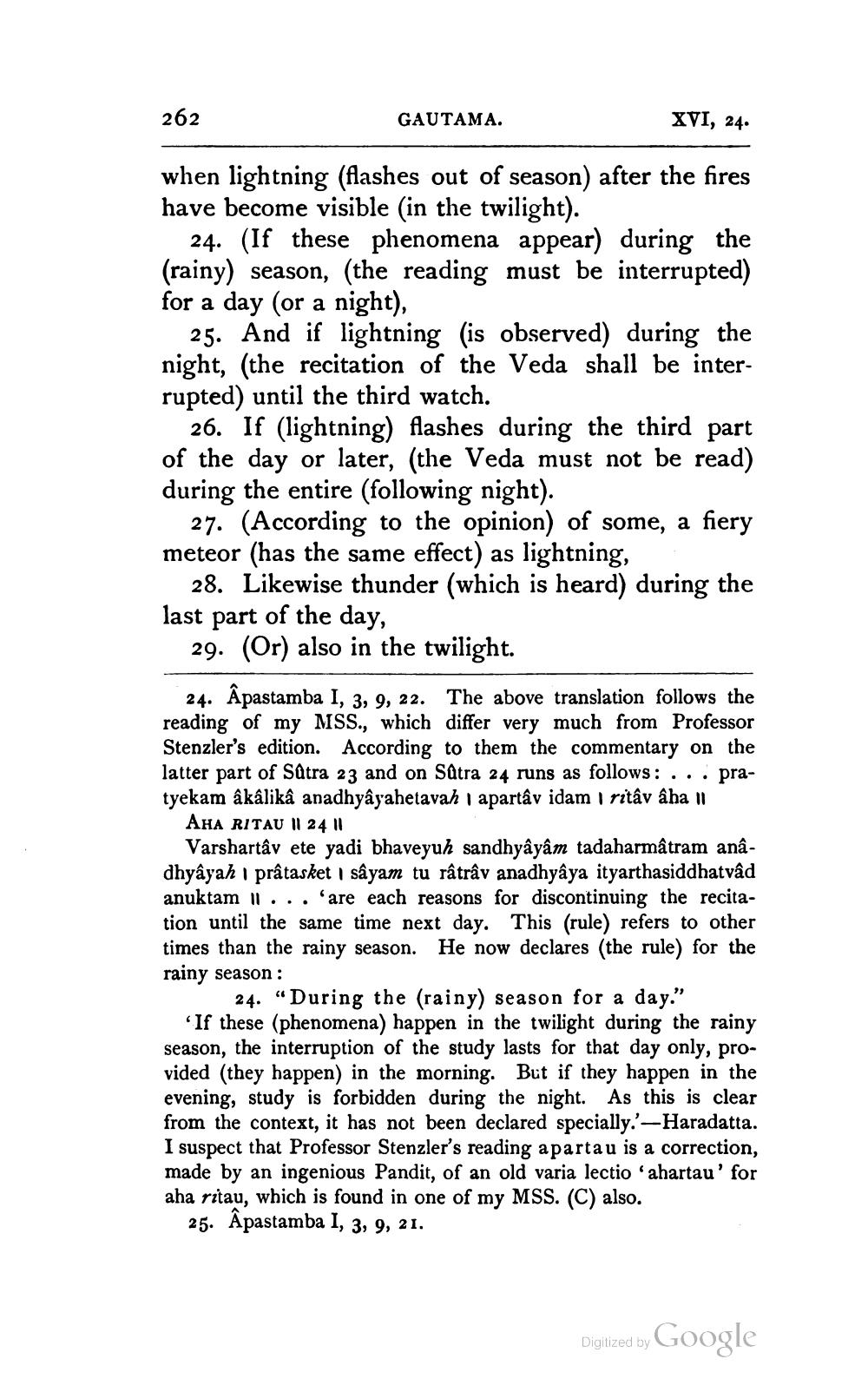________________
262
GAUTAMA.
XVI, 24.
when lightning (flashes out of season) after the fires have become visible (in the twilight).
24. (If these phenomena appear) during the (rainy) season, (the reading must be interrupted) for a day (or a night),
25. And if lightning (is observed) during the night, (the recitation of the Veda shall be interrupted) until the third watch.
26. If (lightning) flashes during the third part of the day or later, (the Veda must not be read) during the entire (following night).
27. (According to the opinion) of some, a fiery meteor (has the same effect) as lightning,
28. Likewise thunder (which is heard) during the last part of the day,
29. (Or) also in the twilight.
24. Âpastamba I, 3, 9, 22. The above translation follows the reading of my MSS., which differ very much from Professor Stenzler's edition. According to them the commentary on the latter part of Sūtra 23 and on Sūtra 24 runs as follows: ... pratyekam âkâlikâ anadhyâyahetavah i apartâv idam I ritâv âha 11
AHA RITAU II 24 11
Varshartâv ete yadi bhaveyuh sandhyâyam tadaharmâtram anâdhyâyah i prâtasket I sâyam tu râtrâv anadhyâya ityarthasiddhatvad anuktam ll ... are each reasons for discontinuing the recitation until the same time next day. This (rule) refers to other times than the rainy season. He now declares (the rule) for the rainy season:
24. “During the (rainy) season for a day.” "If these (phenomena) happen in the twilight during the rainy season, the interruption of the study lasts for that day only, provided (they happen in the morning. But if they happen in the evening, study is forbidden during the night. As this is clear from the context, it has not been declared specially.'-Haradatta. I suspect that Professor Stenzler's reading apartau is a correction, made by an ingenious Pandit, of an old varia lectio ahartau' for aha ritau, which is found in one of my MSS. (C) also.
25. Apastamba I, 3, 9, 21.
Digitized by Google




